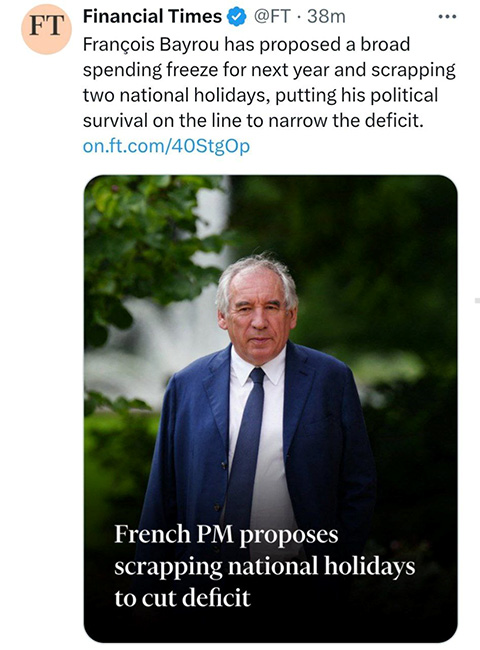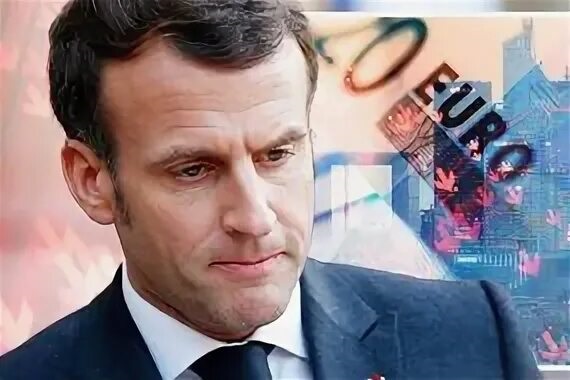
France is on the cliff edge as its debt continues to balloon, Prime Minister Francois Bayrou said on Tuesday as he set out plans to sharply narrow the budget deficit next year, Bloomberg writes.
“We have a duty to take responsibility, we’re at the last stop before the cliff,” the premier said Tuesday at a press conference in Paris to outline his fiscal strategy. “We have become addicted to public spending.”
He added that France’s debt is increasing by €5,000 ($5,815) every second, and that if nothing is done, interest costs will soar to €100 billion in 2029.
Bayrou has brought forward the presentation of the budget, usually in September, to gain time to persuade lawmakers to accept unpopular spending cuts and tax hikes. His predecessor was pushed out last December in a parliamentary fight over 2025 fiscal plans.
The centrist premier is also under pressure from investors who have dumped French bonds over the last year amid deteriorating public finances and political uncertainty.
France’s borrowing costs have increased relative to peers and the country now has the widest budget deficit in the euro area. Bayrou has pledged to narrow the gap to 4.6% of economic output in 2026 from 5.4% this year and 5.8% in 2024.
 Photo: express.co.uk
Photo: express.co.uk
According to figures released by the National Institute of Statistics and Economic Studies (INSEE) on 26 June, public debt rose by a further €40.5 billion in the first three months of the year, reaching €3,345.8 billion at the end of the first quarter – equivalent to 114% of gross domestic product (GDP), ‘Euractiv’ reports.
To reduce the deficit from 5.4% of GDP this year to 4.6% next year – and to fall within the European 3% limit by 2029 – the Prime Minister intends to propose a €40 billion adjustment to the 2026 budget. Stressing this will come without any “indiscriminate tax hikes”, the move will necessarily entail a reduction in public spending.
Measures under consideration include reforms to unemployment insurance and a reduction in ministerial budgets across the board. At the same time, increased defence spending has already been announced, the cost of servicing debt will go up, and France’s contribution to the European Union (EU) budget will also grow.
The government is also said to be counting on a “freeze year”, which would see social benefits – including unemployment insurance and pensions – maintained at 2025 levels, despite an expected inflation of 1.6% in 2026. This freeze could save around €5 billion.
In an effort to win support, the Prime Minister met last week with representatives of the various political groups in the National Assembly. But he knows he is walking a tightrope. Whilst the scale of financial challenge is almost universally acknowledged, there is no consensus on how to address it.
“The budgetary situation is concerning, but political instability is even more so, as it prevents any long-term planning of savings measures,” Mathieu Plane, Deputy Director of the French Economic Observatory (OFCE), told Euractiv. This is a particular concern as a long-term budget course is crucial to retain market confidence, he added.
read more in our Telegram-channel https://t.me/The_International_Affairs

 9:58 18.07.2025 •
9:58 18.07.2025 •






















